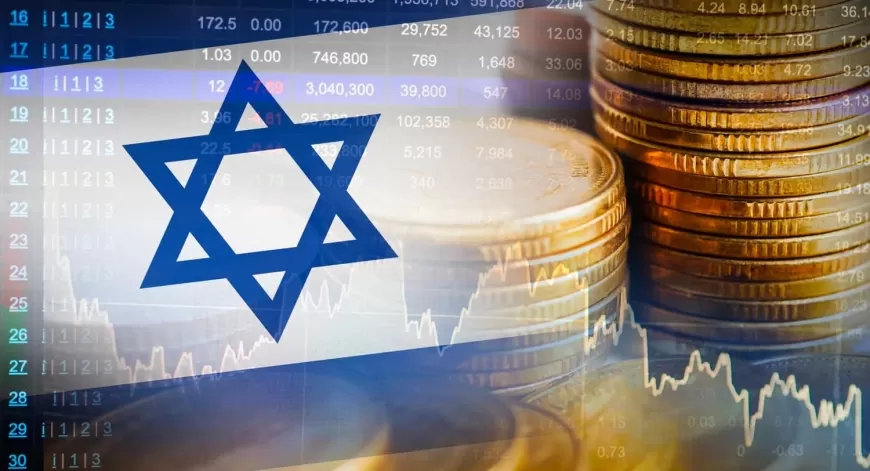Israeli Economy Rebounds Strongly Amid Conflict
Economic Growth Driven by Investment, Consumption, and Government Spending

Israel's economy has experienced a robust rebound, reminiscent of the post-coronavirus pandemic recovery, driven by significant investment, consumption, and government spending. This upswing has partially mitigated the impact of over seven months of ongoing conflict.
In the first quarter, Israel's Gross Domestic Product (GDP) surged by an annualized 14.1% in seasonally-adjusted terms, following a downwardly revised 21.7% decline in the previous quarter. On a quarterly basis, GDP increased by 3.3%, according to preliminary data released on Thursday.
Following the news, the shekel traded slightly weaker against the dollar after two consecutive days of gains. The Israeli currency has faced pressure in recent months due to increased government spending, declining by more than 4% since early March, marking the third-worst performance among 31 major currencies tracked by Bloomberg.
This early-year economic surge is somewhat masking the strain caused by the conflict that erupted after Hamas militants launched an attack from Gaza on October 7. The war, which has resulted in significant loss of life and extensive damage due to Israel's retaliatory actions, has incurred substantial financial costs and disrupted foreign trade and key industries like construction.
Despite these challenges, there are signs that the worst economic impacts may be subsiding. Consumer confidence is nearing pre-war levels, and the labor market has stabilized following a spike in unemployment in October. According to Bank Hapoalim, the Israeli Purchasing Managers’ Index moved back into expansion territory in March, indicating improvements in domestic orders and production, although exports continue to struggle.
The future economic outlook largely hinges on the ongoing conflict, with Israel's military now focused on Rafah in southern Gaza, which is densely populated with over a million people. As Israel approaches a possible full-scale invasion, tensions have risen with the US, European Union, and Egypt due to concerns about civilian safety and restricted aid.
Assuming the conflict with Hamas persists through 2024 without escalating into a broader regional war, S&P Global Ratings forecasts a modest 0.5% growth in Israel's economy for the year. The Bank of Israel projects a growth rate of 2% for 2024, while the Finance Ministry's estimate is slightly lower at 1.6%.
Also Read: Goldman Sachs Expands Mid-Market Advisory with Strategic Hires






























































